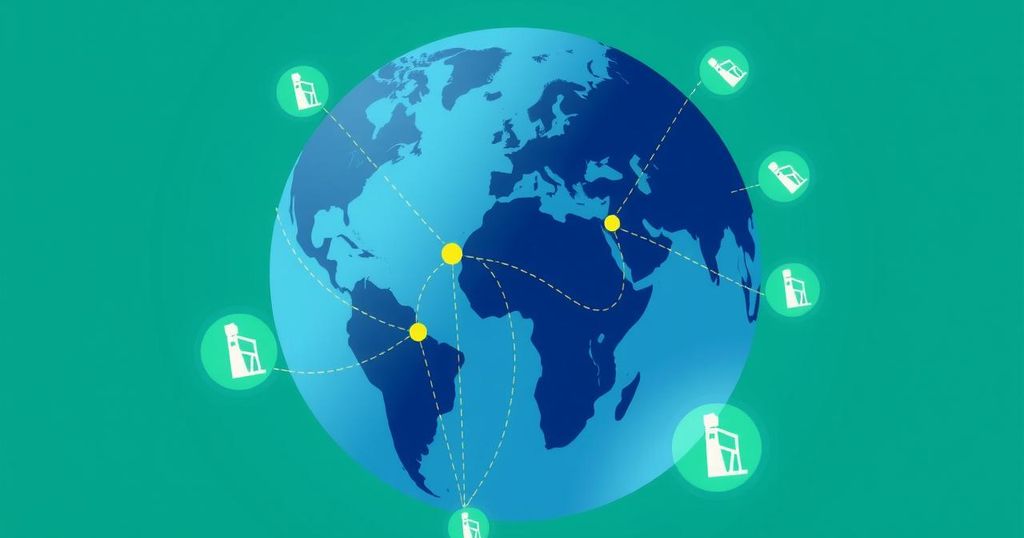Trump’s Tariffs on Venezuelan Oil Imports: Implications for India and Global Trade
US President Donald Trump announced steep tariffs on imports from countries purchasing Venezuelan oil, effective April 2. This move could significantly affect nations such as China and India. Citing economic and security reasons, Trump aims to impose reciprocal tariffs to counter unfair trade practices as tensions escalate in US-Venezuela relations.
US President Donald Trump announced on Monday the implementation of steep tariffs on imports from nations purchasing oil and gas from Venezuela, a measure that may adversely affect countries including China and India. This punitive policy aims to impose economic and diplomatic pressure, contributing to global trade uncertainty. Effective April 2, these tariffs will be set at 25 percent as part of Trump’s ongoing strategy since returning to the White House in January 2023, which has previously targeted both allies and adversaries.
In his announcement, Trump labeled April 2 as “Liberation Day,” expressing intentions to tailor reciprocal tariffs based on perceived unfair trading practices. He referred to Venezuela’s behavior as “purposefully and deceitfully” harmful to the United States, highlighting concerns over criminal activity and hostility from the Venezuelan government towards American values.
Historically, Venezuela has redirected its oil exports to significant economies like India and China in response to US sanctions. Trump’s new tariff initiative comes amid halted deportation processes between the US and Venezuela, a suspension prompted by Venezuela’s alleged failure to facilitate the swift return of deported migrants. However, Venezuela has recently indicated a willingness to resume repatriations after an agreement was reached, allowing deportations to proceed again.
In addition to the tariffs concerning Venezuelan oil, Trump signaled broader tariff actions beginning around the same date, possibly including sector-specific duties on imports in major industries such as automobiles and pharmaceuticals. However, a White House official noted that details remain fluid, indicating potential for a more targeted approach to these tariffs, despite the commitment to impose reciprocal measures.
Market reactions to the announcement reflected optimism for a narrower tariff application, although the White House reiterated its resolve to pursue aggressive tariffs as part of escalating trade tensions, with Trump asserting, “America has been ripped off by every country around the world.” Treasury Secretary Scott Bessent further contextualized these tariffs as being focused on countries identified as having trade imbalances with the US, highlighting a select group termed the “dirty 15.”
In summary, President Trump’s recent announcement of steep tariffs on countries purchasing Venezuelan oil and gas increases economic pressure globally, particularly on nations like India and China. Set to take effect on April 2, these measures are part of a broader strategy to address perceived unfair trading practices. Despite potential for adjustments in tariff applications, the reaffirmed commitment to reciprocal tariffs marks a significant escalation in ongoing trade disputes, reflecting the administration’s stance on international trade relations and national security concerns.
Original Source: www.hindustantimes.com




Post Comment